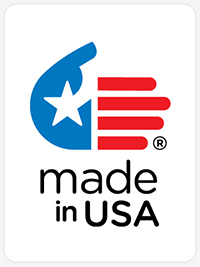 Trust. It’s a word I’m seeing more and more of with regard to business — especially since it’s becoming more difficult to know which brands we can trust.
Trust. It’s a word I’m seeing more and more of with regard to business — especially since it’s becoming more difficult to know which brands we can trust.
- Do you trust a big brand, such as Home Depot or Target, with your credit or debit card?
- Do you trust Facebook with your personal information?
- Do you trust the unknown businesses you find online when searching for products or services?
As it happens, small and mid-sized family-owned companies have an advantage when it comes to trust.
For its 2014 Edelman Trust Barometer, the family-owned PR firm asked respondents about their levels of trust in public versus private companies. Edelman asked about trust against 13 characteristics, including responsive to customer needs, entrepreneurial, innovative, and acts responsibly.
Across the board, except in Asia, private companies hold the trust advantage. For North America, 85% of respondents indicated family-owned businesses were more trustworthy, with small and medium-sized businesses following at 78% and privately-held companies coming in third at 63%.
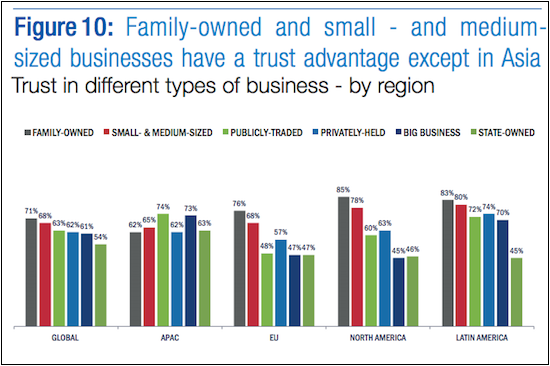
Interviewed for Family Business Magazine, Ben Boyd, global chair of corporate practice at Edelman, stated:
Family businesses have a reputation for being ‘more community-minded and more values-based’ than other types of companies. If I ran a family business today, I’d want to make sure this was understood in the public messaging of my company. I would want to talk about the values-based culture and the connection to the community.
He went on to add that while family businesses tend to be conservative when it comes to marketing, “they need to trumpet their trust advantage by humanizing their enterprises” through social media and their websites. “Family businesses, he said, “should take full advantage of a perceptual asset that many other [businesses] would kill to have.”
Edelman sampled 27,000 people within the general population as well as 6,000 members of the “informed public” in 27 countries. 2014 marked the first time the firm asked questions about trust in business based on company ownership structure.
“Made in America” also a trust factor
In a recent survey of 1,500 people, American Certified, the world’s largest online store for Made in the USA products, learned that an overwhelming majority, 51.9%, prefer products made in the US.
According to a Manufacturing.Net article, the American Certified website features over 1.5 million products.
AC uses a simple yet powerful search system to identify and organize millions of US-made items from thousands of manufacturers. As a result, American Certified is poised to become the de facto portal for US-made goods online, giving users a way to easily shop for top-notch American-made products. This capability, in turn, promotes product safety, quality, working conditions and the creation of new jobs.
I’m wondering if American Certified will also become the defacto source for B2B companies seeking US-based manufacturers.
Key-takeaways for small, family-owned manufacturers
All of this is wonderful news, but how can you begin applying it to your company? A few easy things you can do:
Show the people who work in your company — I’ve preached this for years, and am still amazed that I get considerable push-back, but show the people in your building versus posting a picture of your building. Trust me, NO ONE takes a building out to lunch nor do they call a building in order to place an order.

Team bios with photos are good start. So is adding your company history and showing a photo of your granddad (or grandma!) who started the company along with a gritty story or two.
Talk about your values — One company I interviewed a few months ago is committed to hiring younger workers from the local community and then training them. This training includes not just job training, but “how to be a good employee” training — habits that kids from at risk communities often don’t know or have.
And, based on the people I meet on a regular basis, most small business owners are active in community organizations, whether it’s the Girl or Boy Scouts or partnerships within the manufacturing and education communities that seek to bring young people into manufacturing.
Tout these relationships! People want to know who you are and what you stand for.
Build credibility and trust through web content — Clients continue to ask me to “optimize” their websites using keywords. Keywords are good. But today, it’s all about content — the kind that builds trust.
Trust, according to David Amerland, author of Google Semantic Search, is the underpinning of the “new” SEO. On the semantic web, says Amerland, where transactions and relationships have become quite visible and transparent, the need to “closely associate your company and brand with trust and a great reputation” is of critical importance.

Komarketing and I have our 2015 B2B Website Usability Survey running and already we can see from the data that content such as About pages, Contact Information, the right kind of forms and marketing collateral go a long way to building trust.
Use “Made in the USA” icons and messaging — As American Certified has shown, consumers will pay a higher premium for “Made in America” products. From what I’ve been reading in media from across the US, “family-owned” and “made in the USA” are two characteristics getting considerable media play.
(Check out my Twitter feed — I post these stories on a regular basis.)
If your products are made in the US, let your prospective buyers know. B2B buyers are consumers too — and your message of “Made in the US” usually means higher-quality and innovation backed by a company involved in its community. What’s not to love?
Sources
- 2014 Edelman Trust Barometer
- Survey: Family firms have the public’s trust by Barbara Spector, Family Business Magazine, May/June 2014
- Survey Shows Growing Preference For ‘Made In USA’ by Jolie Darrow, Manufacturing.Net, October 29, 2014
- American Certified
- David Amerland
- Dianna Huff’s Twitter feed


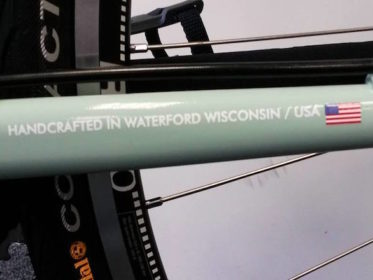
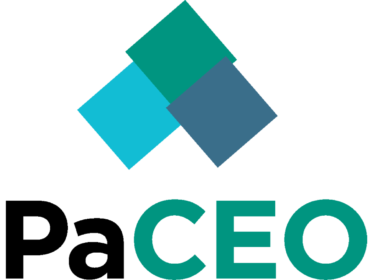
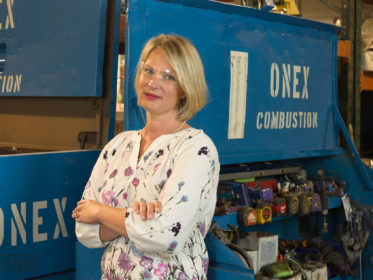
Joy Underhill
Hi Dianna. Love these simple ideas! Thanks for compiling this info.
Dianna Huff
My pleasure.
Jiyun Zhu
Hello Diana @diannahuff:disqus ,
This was a great article. My name is Jiyun Zhu and I am doing a History Fair project with my friend, Hope Tsai for my school in Illinois. History Fair is an intensive research project that requires compiling a lot of research, analyzing this information, and conducting interviews. Our project is about Blommer Chocolate Company and how its being a family company is the reason for its success. We are wondering if you would be willing to talk to us about the advantages and disadvantages and statistics of being a family company. Please email me at
jiyunzhu@gmail.com . Thank you so much and have a good day.
Jiyun Zhu
Dianna Huff
Hi Jiyun — Absolutely. Have emailed you now.